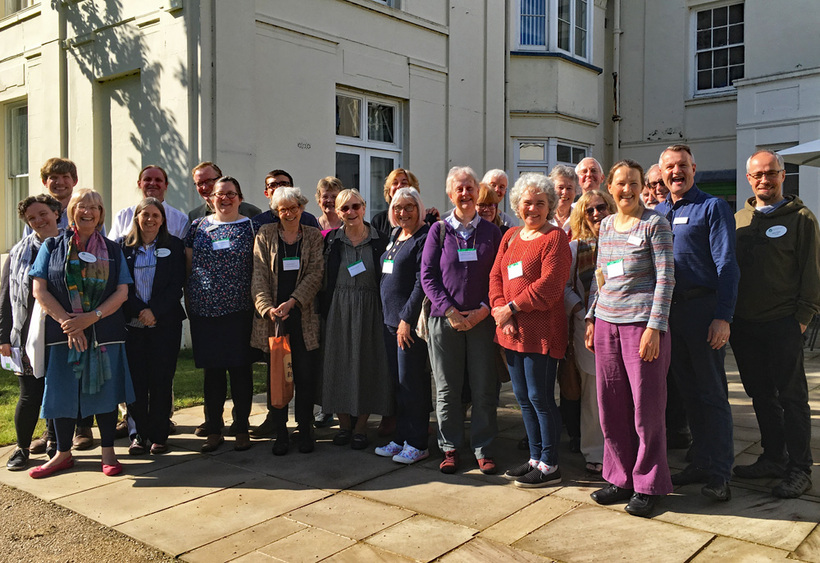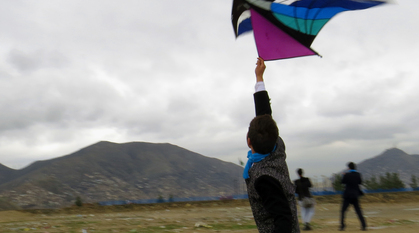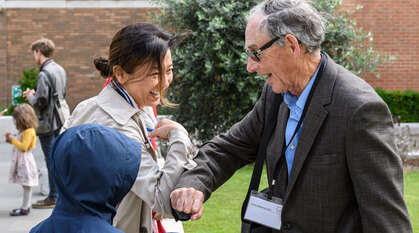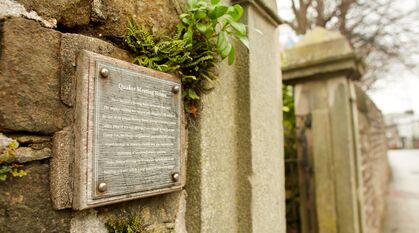Experiments in faith: finding a meeting-centred approach
Quaker communities across Britain will be supported in new ways thanks to some bold changes in the way we work says Paul Parker in this joint blog with Woodbrooke's Sandra Berry.

The institutions that exist to work for and on behalf of Quakers haven't always been the shape they are today.
Early Quakers shared a radical, new and hopeful vision of faith, focused on the inward workings of the spirit rather than an outward show of piety. The structures for the Society of Friends which were set up then, by people living on the cusp of change, were designed to meet new needs and hopes.
Our Quaker structures have evolved since this time. We now have a national charity, based at Friends House in London, which works for and on behalf of Quakers. And we have Woodbrooke, set up in 1903 as an independent institution to nurture a vital Quaker ministry.
Today, like so many other groups, Quakers face new challenges. How do we create a lively community when so much is shouting for attention? How do we explore spirituality when the practical needs attention first? What function do meetings serve when people move often, and struggle to meet their own needs?
Add to that our new commitment to examine our privilege and diversity and we have a set of questions, many of which have no easy answers.
Connected, confident and supported
Over the weekend of 7–9 June, the Trustees of Woodbrooke Quaker Study Centre and Britain Yearly Meeting (the governing body of Quakers in Britain) spent time together talking, listening and in worship. Together, they took a decision to reshape the way the two bodies work together, with the aim of improving the ways we serve the needs of Quaker communities across Britain.
First, they decided to extend and expand the successful Vibrancy in Meetings pilot programme. This joint pilot programme experimented with locating paid employees in different areas of Britain to test whether local support better enables Quaker communities to thrive.
After just two years, our evaluation told us that Friends in the Vibrancy areas felt more connected, confident and supported. A third of meetings involved were making changes to reduce demands on role holders. Others reported that the programme was helping bring meetings together as a community.
Overall there was a clear message: locally-based support not only helps Quakers to be Quakers, but also to enjoy being Quakers. Based on this evidence trustees decided that within five years we should aim to have a local development worker in reach of each meeting.
The two trustee bodies also agreed to experiment with hubs or clusters of support based outside London and Birmingham, moving the work closer to Friends.
Bold changes
We'll still need Friends House, and of course Woodbrooke has a programme of learning wider than support for meetings, but we can see many opportunities in thinking more flexibly. Our aim is to build better connections between local Quaker communities and the work being done for and on behalf of the yearly meeting. We hope to become more relevant to Quakers in all parts of Britain; to strengthen local resilience and reduce our carbon footprint.
As the Director of Woodbrooke Quaker Study Centre and the Recording Clerk of Quakers in Britain we're under no illusion: these changes are bold, and will need to be thought through, managed carefully and evaluated.
We know there is a lot of energy and enthusiasm for a more meeting-centred approach. We also know that what works in one part of the yearly meeting won't necessarily be right for another. To get this right we need to listen to and talk with Friends to explore this new approach and better understand what's going on in their areas and what they need.
We hope by the end of the summer to have a system set up where Quaker communities interested in hosting a Local Development Worker or a trial working cluster will be able to express their interest.
Living adventurously
During our weekend we were reminded of Advices & queries 27: "Live adventurously. When choices arise, do you take the way that offers the fullest opportunity for the use of your gifts in the service of God and the community?"
Over 350 years after Quakers started to gather in northern England, Friends still have something important and exciting to offer the world. We believe this new approach will better enable us to use our resources to serve God and the community.
Friends, please join us in going forward into the future as Quakers always have tried to do: with hope and in love.


